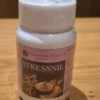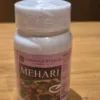Diverticulitis
Diverticulitis is a chronic gastrointestinal tract condition in which pockets like structure (also known as a ‘diverticula’) formed as a weak point in the mucosa and submucosa layers of the colonic wall. Here the term ‘diverticula’ represents the small-sized pockets in the intestinal walls, which usually occur in the lower part of the large intestine (colon) and are quite common in people who are above the age of 40 yrs without causing a serious problem.
Diverticulitis can lead to perforations or tears which create infections, blockage, and sometimes bleeding due to protruding pockets that can create in bring down a piece of digestive organs. A gentle instance of diversity can be treated with a sound eating regimen and complete rest, yet there is some special medicine required.
In General, the thickening of the muscular layer due to the deposit of collagen and elastin in the colonic wall has been consistently observed in ‘Diverticulitis’. It is believed that this imbalance of structure affects both mobilities, increased intraluminal pressure, and effectiveness of peristalsis with Irritable Bowel Syndrome.
Etiological Factor of Diverticulitis
The main cause of diverticulitis is obscure to present-day restorative science but it is said to be the formation of high pressure on the walls of the colons from inside are possible causes of this condition.
- Being overweight may be the reason.
- Smoking or long-term conception of alcohol.
- Chronic constipation
- Use of specific pharmaceuticals like ibuprofen and naproxen.
- Lack of physical activity or exercise
- Non-vegetarian diet with low fibre
- In some cases, the chronic stage of the fistula may be the causative factor of diverticulitis
Symptoms of Diverticulitis-
- Moderate to severe pain, usually in the lower-left side of the abdomen
- Vomiting and nausea
- High grade of fever
- Constipation
- Diarrhoea
- Loss of appetite
- The feeling of incomplete fecal evacuation
- Malaise or headache may be present
- Chills may be present with fever
Ayurvedic Concept with Management
In Ayurveda wisdom, Digestion is the key to health, and all diseases ultimately result from poor digestion are explained as ‘Mandagani’ and come under the ‘Udara Roga’ (Disease of Digestion System), and here are prime symptom is Abdominal Pain.
According to Ayurveda, ‘Vata Dosha’ is vitiation is a major sign of Diverticulitis in the human body, Due to improper elimination of waste or improper digestion of the food in the body, the toxins formed and get accumulated and lead to imbalanced or vitiation of ‘Vata Dosha’ along with the other ‘doshas’ in the body
Ayurveda further explained that ‘Vata Dosha’ accumulates and becomes aggravated in the Colons (Purishawaha Shrotas). ‘Apan Vayu’ is a subtype of ‘Vata-dosha’ and due to downward movement, it is blocked. ‘Vata’ moves sideways in the Cardiac region, Urinary Bladder, and Anus and suppresses the power of digestion. Overflow moves into the Mucosa/Lymph (Rasa/Kapha) and Blood (Rakta). Vata moves to the colons as the site of relocation where it manifests and Diversifies.
Vata Dosha unable to move downward continue to push sideways (Vyan Vayu) on the colons increasing pressure on the muscular wall of colons causing the pouches to form. ‘Vata’ pushes ‘Pitta Dosha’ resulting in inflammation and infection with possible bleeding.
In Pranava Kerala Ayurveda Clinic, the first line of treatment is increasing the power of ‘Agni’ (Digestive fire) which promotes the healthy function of the gut.
‘Abhyantara Snehana’ (Oleation Therapy), ‘Swedana’ (Sweating to excrete toxins) followed by ‘Virechana’(Purgation therapy with the help of laxatives)
Useful single Herbal beneficiaries are Aloe Vera, Amalaki (Indian Gooseberry), Liquorice, Flax seeds, Marshmallow and Mild yam, etc
Ayurvedic Medicine prescribed by practitioners in Pranava Kerala Ayurveda Clinic
Diet and Lifestyle Advice by ‘Pranava Kerala Ayurveda Clinic’
A high fibre diet should be increased including fruit & vegetables, like cauliflower, raisins, cabbage, berries, green leafy vegetable, celery, beans, guava, figs, flaxseed, orange, mushroom, etc
Practitioners of Pranava Kerala Ayurveda Clinic advise drinking a good amount of water about 7-8 glasses of water every day.
Tea, coffee, milk products or dairy products, alcohol consumption, smoking, excessively spicy food, heavy non-vegetarian food, and fried food should be cut down.
Do not hold natural urges, because as per Ayurveda, natural urges are signals to an individual to act, and need to be attended immediately. suppression of natural urges will lead to constipation.
To find out more about how Ayurveda can help with the above condition, visit Pranava Kerala Ayurveda Clinic or call 0208 907 7902 to book an appointment with an expert Ayurvedic Practitioner.
Medical Advice Disclaimer
DISCLAIMER: THIS WEBSITE DOES NOT PROVIDE MEDICAL ADVICE
The information, including but not limited to, text, graphics, images and other material contained on this website are for informational purposes only. No material on this site is intended to be a substitute for professional medical advice, diagnosis, or treatment. Always seek the advice of your physician or other qualified healthcare providers with any questions you may have regarding a medical condition or treatment and before undertaking a new health care regimen, and never disregard professional medical advice or delay in seeking it because of something you have read on this website.




